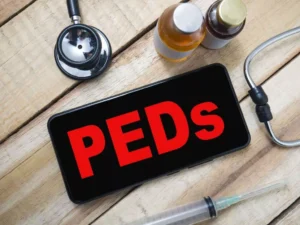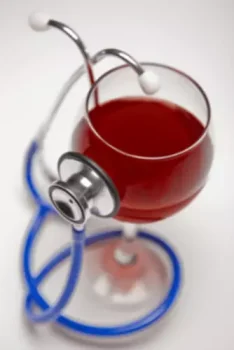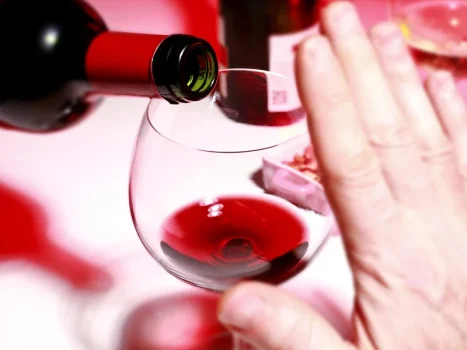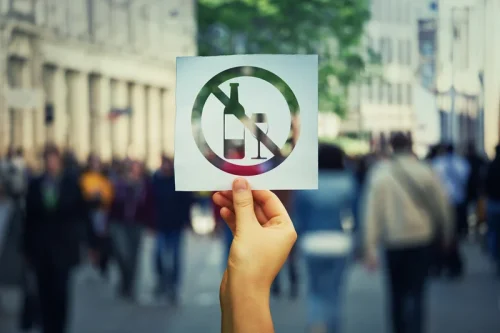Withdrawal symptoms, such as anxiety and craving for more alcohol, can exacerbate mental health issues if alcohol is used as a coping mechanism instead of seeking professional help. This raises an important concern about worker safety, colleagues, and the public they serve. Stress and substance abuse, such as alcohol, can be common in people who do not have effective ways to manage their stress. Despite the relaxing effects you think alcohol may have, it is a depressant. Alcohol disrupts the chemical balance in your brain and affects the way you think, feel and behave.
- Some companies even designate a day of the week for an after-work happy hour.
- Addiction Resource is an educational platform for sharing and disseminating information about addiction and substance abuse recovery centers.
- Regular after-work drinking, often seen as a way to unwind, holds significant psychological implications for individuals.
- Conversely, an employer may chose to discourage any company-sponsored drinking outside of work.
Reach out to the addiction and mental wellness specialists at Grace Counseling today!
They can also leave you more sensitive to alcohol’s effects and raise your risk of withdrawal symptoms. Many people are still happy to imbibe at employer-sponsored happy hours, holiday parties and corporate events. And among younger generations particularly, there’s more willingness to experiment with cutting down alcohol consumption and trying sobriety, in their personal and professional lives. In a survey of 4,000 UK students by Bright Network, a graduate careers and employment specialist, 45% of respondents said alcohol shouldn’t play a role in work social activities. Although some employees welcome alcohol into their work lives, the emphasis on drinking culture in the workplace doesn’t sit well with all.
- More pertinently, perhaps, they can become allies, confidants you can turn to in times of professional or personal crisis.
- Inpatient treatment is best for moderate to severe alcohol addictions or people who have relapsed.
- It is, therefore, crucial to recognize the fine line between social drinking and its potential to harm relationships.
- Addiction Resource does not offer medical diagnosis, treatment, or advice.
- This prohibition is backed by legislation such as the Department of Transportation (DOT) Regulations, which may criminalize operating vehicles while impaired by alcohol.
How frequently do you drink after a hard day of work?

Amitava Dasgupta, PhD, medical director of clinical laboratory at the University of Kansas Medical Center and author of the book, “The Science of Drinking,” agreed. You can’t tell how much alcohol is in your drink by the amount of liquid in your glass or bottle. Sunnyside uses a psychology-based approach to help you drink more mindfully, no matter what your goal is. You’ll get a 100% custom plan, then use daily texts to track your progress and help you stay on target. If you’ve ever tried to break any habit, you probably know it’s often easier said than done. Learning to work through difficult emotions and handle these challenges in more productive ways can improve your relationships and overall well-being, not to mention help reduce the urge to drink.
American Sports
You might eventually start craving that reward in new situations. Over time, alcohol use begins to affect the neurotransmitters, or chemical messengers, in your brain. Despite the rebuke by Generation Z, who, according to the New York Post, „tend to be ever concerned with ‚healthy‘ work-life boundaries,“ the after-work drink drinking after work remains on tap. Alternatively, make every second drink a soft drink, a club soda perhaps, or a Coca-Cola. Again, you can keep pace with your co-workers without soaking up too much alcohol, and it will help keep you hydrated, too. Ultimately, after-work drinking is about loosening up, blowing off steam, and having fun.

Perhaps surprisingly, over one-third (38%) of Americans believe after work drinks are a good way to bond and strengthen a team. This might have something to do with the relaxed nature of a restaurant or bar as compared to a stressful office environment. Employees can get to know each other on a more personal level, https://ecosoberhouse.com/ which can translate into working together more cohesively. Supervisors should not drink with, or purchase drinks for, a subordinate unless all employees are invited. Today, this sort of gathering occurs frequently, but it could increase the chances of the worker-supervisor relationship becoming somewhat muddled.

How Does Drinking During Work Affect The Workplace?

While there’s nothing inherently wrong with enjoying a drink at the end of the day, it’s important to be mindful of the reasons behind this habit. Are you drinking to relax, or is it a coping mechanism for work-related stress? Understanding your motivations can help in assessing whether your drinking habits are healthy or potentially problematic. Moreover, after-work drinking is often intertwined with workplace culture, where it is sometimes seen as a professional ritual or even an investment in the work environment.
After-Work Drinking: Definitions, Prevalence, and Social Dynamics
Indeed, socializing with co-workers serves as a way of connecting with colleagues in a more relaxed and informal atmosphere. While HR can establish codes of conduct employees must abide by, there will still be limitations on all employee actions outside the workplace. If a circumstance of this nature were to arise, it should be addressed and handled by HR. According to a new study conducted by American Addiction Centers and Alcohol.org, the average American worker spends more than $3,000 per year on after-work drinks.
